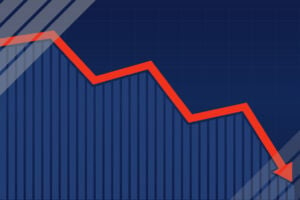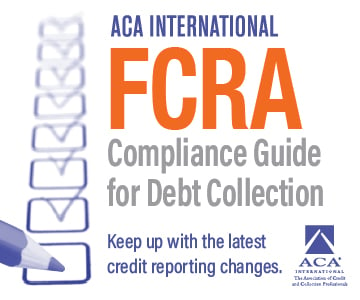 Industry representatives testified in opposition to the reach of the bill and seek compromise on the garnishment rate from lawmakers.
Industry representatives testified in opposition to the reach of the bill and seek compromise on the garnishment rate from lawmakers.
03/14/2023 3:20 P.M.
4 minute read
The Oregon Legislature is considering a wage garnishment bill that had its first hearing in a House committee this month, including testimony from ACA International CEO Scott Purcell and Oregon Collectors Association Lobbyist Matt Markee, president of Markee & Associates.
House Bill 2008 would amend garnishment levels and affect how a plaintiff can pursue violations of Oregon’s Unlawful Debt Collection Practices Act (UDCPA), according to a summary from the House Committee on Business and Labor, which held the first hearing on the legislation.
Specifically, the bill:
- “Increases the minimum protected wage amount from $254 to $1,000 per week.
- Exempts working car, work tools, and work equipment from debt collection seizures.
- Increases the homestead exemption from $40,000 to the median home value in the county where the home is located.
- Requires a financial institution to leave a minimum of $12,000 in a person’s account, protected from garnishment.
- Permits a plaintiff to bring action, including class action, for unlawful debt collection practice within six years after discovering unlawful practice and increases amount of recoverable statutory damages.”
The bill also seeks to align the statute of limitations for a plaintiff to pursue unlawful debt collection practices, including class action lawsuits, with the time frame debt collectors have to pursue a debt.
Testimony in Opposition to HB 2008
Testifying on behalf of ACA and the Oregon Collectors Association, Purcell noted the integral role of debt collectors in the overall credit-based ecosystem, including that debt collectors return over $90 billion a year to creditors, saving every American family $706 each year from rising costs, and the impact HB 2008 would have on small businesses and consumers.
“This bill will have a chilling effect on access to credit for our most vulnerable Oregonians and will thwart new small business formation, increase the demise of many of Oregon’s existing 410,000 small businesses, and inflate costs for goods and services for all Oregonians,” Purcell said. “Put simply, this bill significantly damages the quality of life for many more Oregonians than it will ever help.”
Research from the Federal Reserve Bank of New York has found “consistent evidence that restricting collection activities leads to a decrease in access to credit and a deterioration in indicators of financial health,” and shows the greater impact of these restrictions on borrowers with lower credit scores through less access to credit.
The Fed used individual credit record data to analyze the “effect of debt collection on consumer credit and on indicators of financial health,” as well as research on consumer credit in states with increased restrictiveness on debt collection through legislation compared to consumers’ financial outcomes in remaining states.
The research report, “Access to Credit and Financial Health: Evaluating the Impact of Debt Collection,” findings “suggest that the decrease in supply resulting from stricter collection laws dominates the increase in demand” and the “decrease in access to credit is stronger for borrowers with low credit scores, but is felt across the credit spectrum,” Purcell noted in his testimony.
In addition to changing the exemption parameters in the UDCPA, the provision to move the statute of limitations from one year to six will also have a negative effect on small collection agencies, and therefore a negative impact on lending.
“This is a solution in search of a problem. Due to the federal strict liability standard debt collectors have long worked under, even a simple, honest mistake results in a hefty expense,” Purcell told the committee in his testimony. “There are many mechanisms, including free-market factors, that will eliminate any poorly run or illegal actors in the space.”
During the hearing, the committee discussed:
- The impact of debt collection practices on availability of credit.
- The ability of a consumer to satisfy debt through garnishments and maintain financial resources to live.
- Self-executing exemptions and automatic Consumer Price Index adjustments.
- Reasons consumers have debt, such as health care, accidents, and one-time, emergent life events.
- Changes to the homestead exemption.
- The amount of net earnings protected from garnishment.
Markee’s testimony (PDF) focused on the fact that the proposed changes to the UDCPA impact anyone collecting a debt, not only third-party collection agencies.
Markee also noted that the bill’s changes to the way attorney fees are handled when suing under the consumer protection statute would only allow a defendant access to attorney fees if they could prove a frivolous lawsuit.
“In addition,” Markee said, “the bill would allow for class actions against creditors with absolutely no cap on statutory damages. Under federal law, if a collection agency is sued in a class action the statutory damages are capped at 1% of net worth. This is because Congress recognized that these amounts can rapidly add up to exorbitant numbers in a class action for very minor, technical violations and Congress did not want these types of cases driving businesses into bankruptcy.”
Next Steps
ACA and the Oregon Collectors Association are seeking a compromise on the bill to amend the proposed increase in garnishment exemptions.
It will next be considered by the Oregon Senate and then a conference committee if the bill advances.
Remember, subscribe to ACA Daily and Member Alerts under your My ACA profile when logged in to acainternational.org to receive updates on the ACA Huddle.










